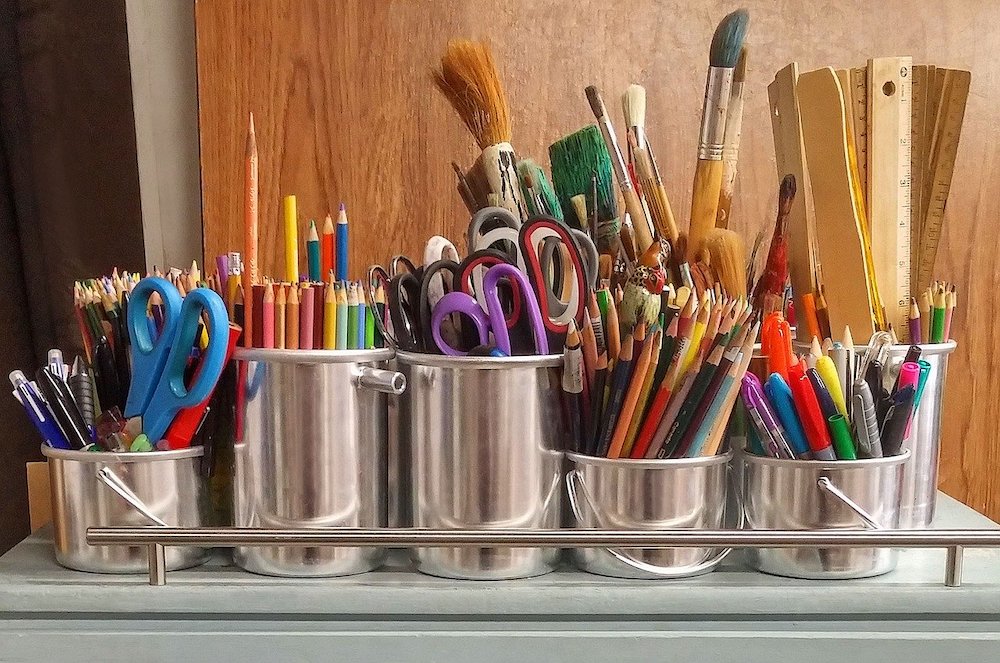Affiliate links may be included for your convenience. View our privacy and affiliates policy for details.
It’s easy to dive in and start something new with a lot of enthusiasm that can quickly go away when you realize your goal is harder than you thought. There’s a better way to get started.
This year I decided I really wanted to learn more about Japanese knitting patterns. They have a strong following around the world for their beautiful, simple style, but they present a learning curve.
Not because of the language barrier — or at least not just because of it — but because the patterns are presented as schematics with stitch counts rather than written instructions like we are used to in the West.
This is great for people who want to knit these pattern who don’t read Japanese, but it takes some getting used to when you’re accustomed to the hand holding of traditional American and European patterns.
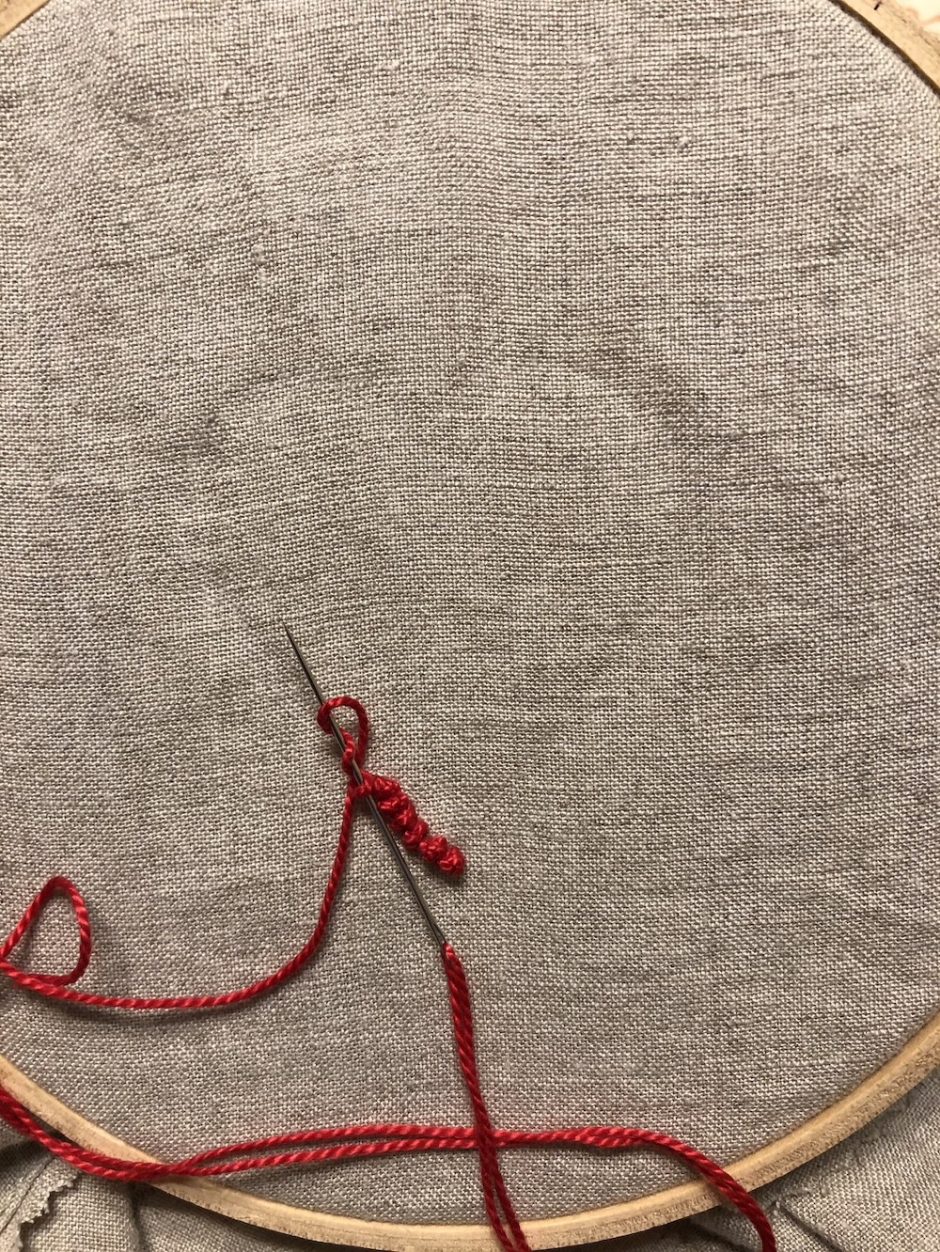
Start Small to Start Something New
While it would be easy for me to say that I’m an experienced enough knitter to just dive in with knitting whatever pattern catches my eye, I know that I would probably get frustrated and abandon the project before it was completed.
I know I need to start with a relatively easy project, and you probably do, too. Whatever it is you want to try this year — a new hobby, writing a novel, decluttering your house — starting small is a great way to start something new.
Don’t try to crochet a sweater as your first ever crochet project. Don’t set out to write a 300,000 word epic if you’ve never written so much as a short story before. Start with a drawer before you take on a whole room.
Stretch goals are amazing and I absolutely recommend them (I mean, level up is my “word” for 2020) but a good foundation is important. Learn the basic embroidery stitches before you decide to make a giant tapestry, for example. Starting small is a great way to gain momentum.
Expect to Be Bad for a While
It’s important to start something new with the understanding that you will probably not be very good at it for a while.
As adults we are not used to that feeling of not entirely knowing what we are doing, even less so the understanding that it’s OK not to know what we are doing.
That’s part of why starting small is a great idea, too, because there’s less room to get frustrated with your ineptitude when you’re working on a small project.
Mostly we need to remember that new things don’t always come easily, and that’s normal. That’s not a reason to give up. We’re totally comfortable with reminding our kids this (and they know it more innately than we do); we need to remind ourselves as well.
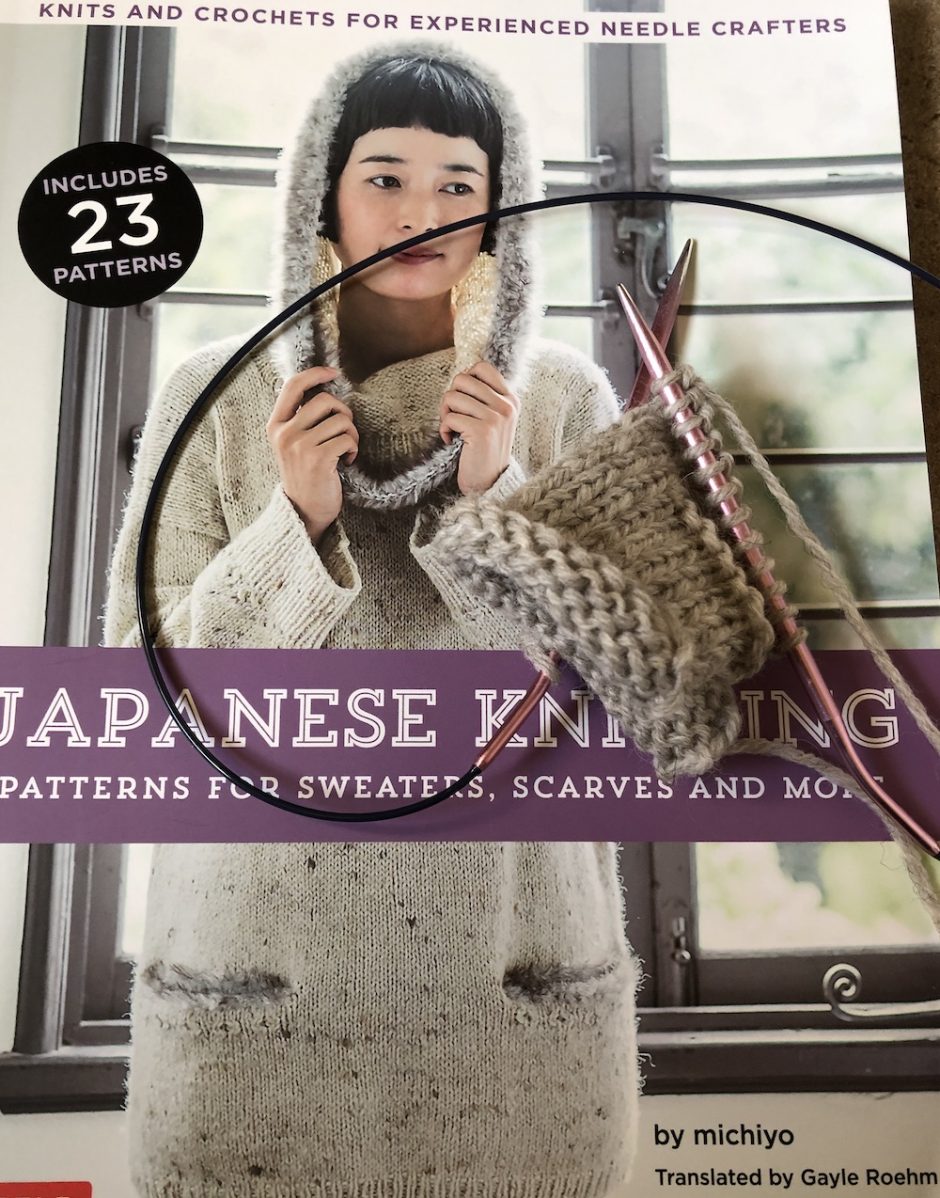
Get the Resources You Need
Whether it’s buying the right supplies to get your new craft on the right track or seeking out books, videos and courses to propel you to success, having the right information and resources available is so helpful for reaching goals and starting new projects.
I’ve said this before, but it bears repeating that you don’t have to do anything alone. Someone has already learned what you are trying to learn and they probably made a video or wrote a blog post about it. Spend some time seeking out those resources and actually using them to help you get comfortable with what you are trying to do.
For me, the book Japanese Knitting: Patterns for Sweaters, Scarves and More by michiyo is proving a great help. The book is designed for English-speaking knitters and contains lots of information about how to read the patterns, as well as expanded sizes, yarn information and more detailed text than Japanese patterns typically provide.
It’s sort of like training wheels before setting off into books for the Japanese market. Knitting a few projects from this book should teach me what I need to know and make me more comfortable with bigger challenges in the future.
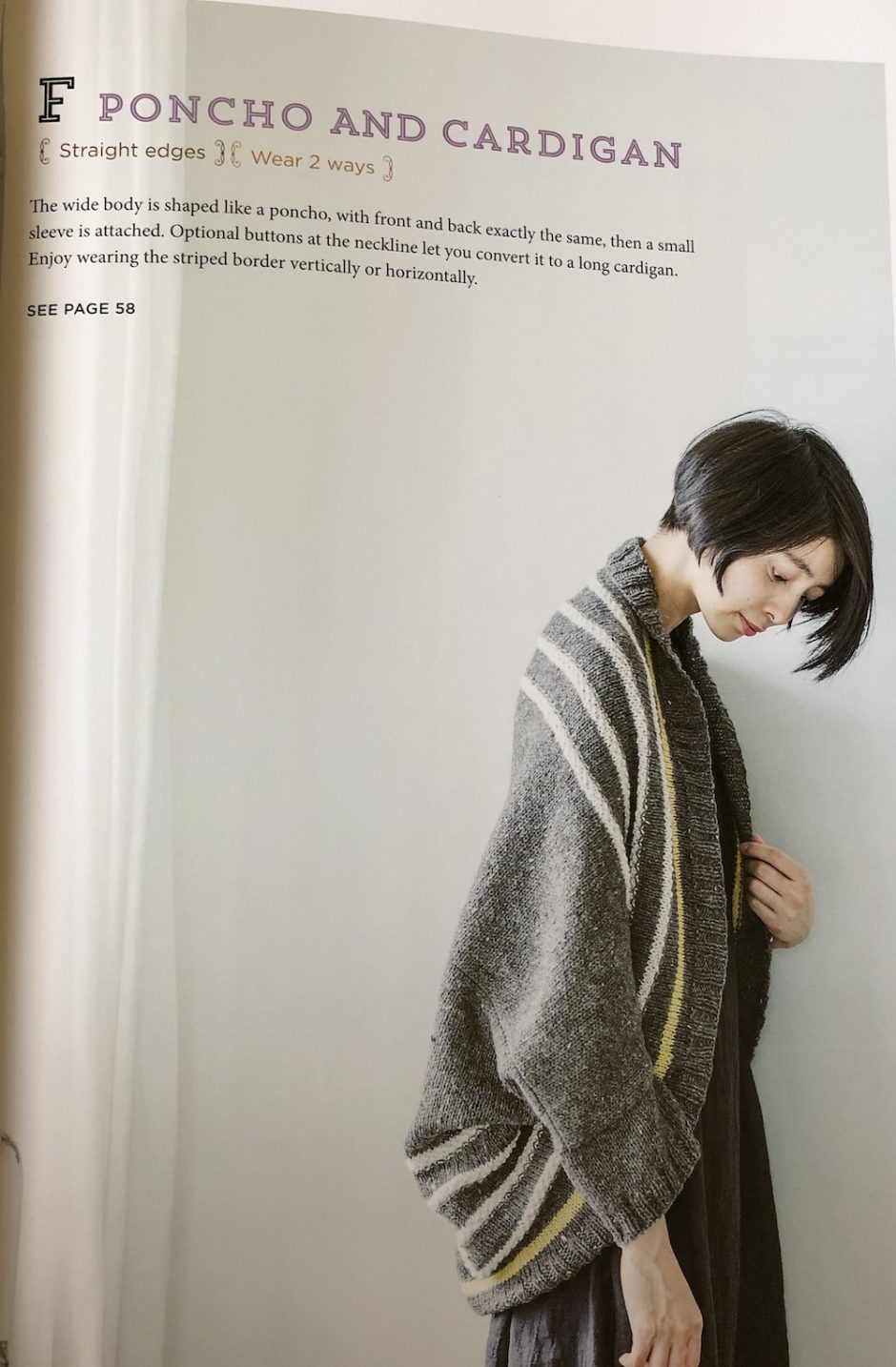
Daily Practice
I’m a big fan of doing things every day when you start something new. It’s partly about forming a habit (like my 20/20 challenge) and partly that when you’re learning a new skill, doing it daily — or at least often — helps cement the basics in your mind and body.
You’ll pick up sewing faster, for instance, if you do a little bit every day. You’ll build confidence faster and be excited by having finished projects to show off more quickly (coupled with starting small).
Because I already know how to knit, I might not need to work on my Japanese project every day, but it’s a good idea for me to seek out resources, check out other books, and work consistently on projects from the book to gain confidence.
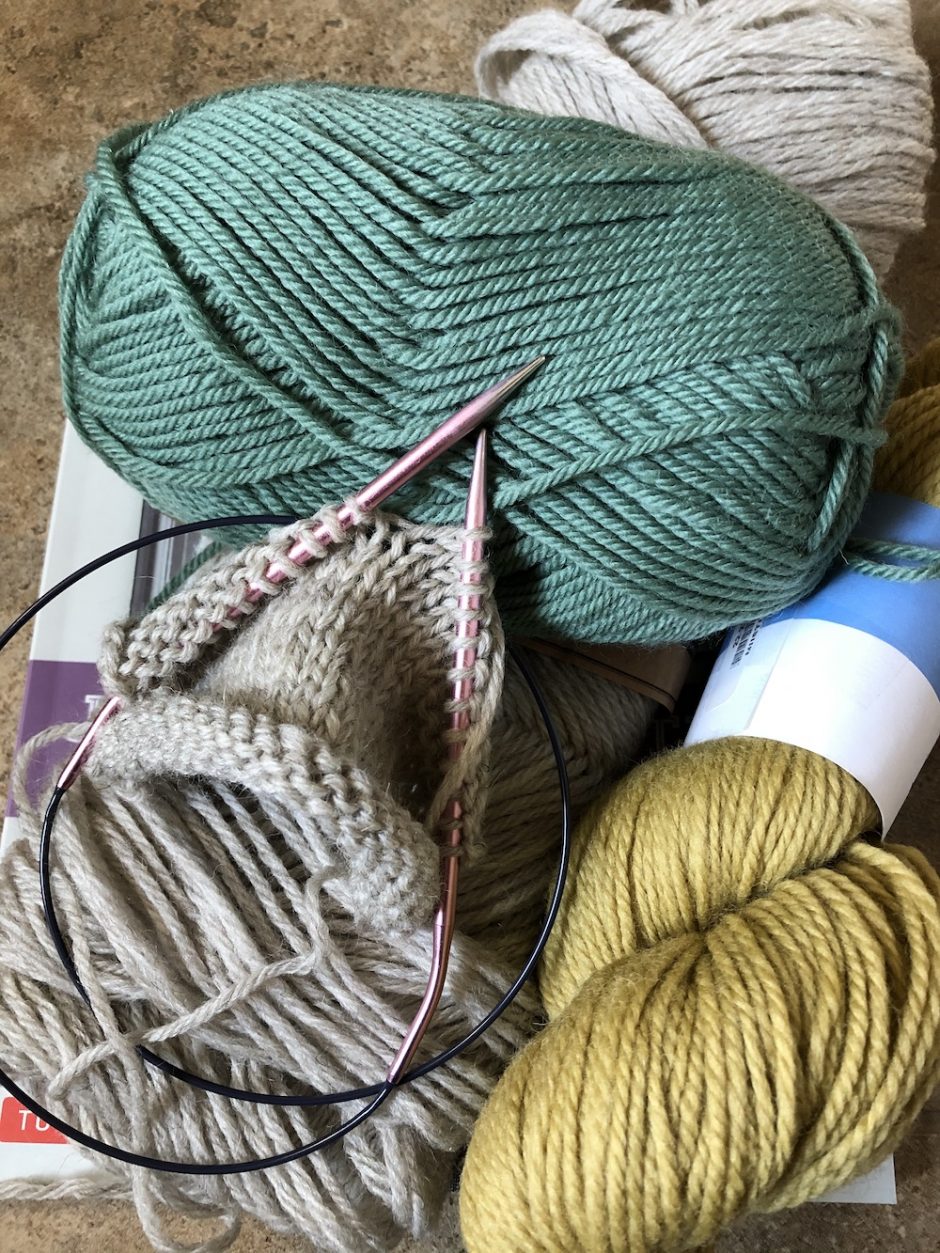
Evaluate Your Progress and Your Goals
When you start something new, it’s important to check in with yourself often to see how it’s going and what you might need to adjust.
- How are you feeling about your new project?
- Do you need more information or to learn different skills to make it more successful?
- Are you enjoying it?
- Do you want to continue?
- What have you learned about yourself through this project?
- What can you adjust to make it better?
Celebrate Your Goal with a New Goal
Once you’ve mastered whatever small thing it was you started out with, it’s time to set a new goal. Go ahead and stretch now that you have some confidence, or go with the next small step.
Either way, keep evaluating your progress and reaching for the next thing to keep building your skills and confidence that will help you reach any kind of goal — business, creative, personal — in the future.
